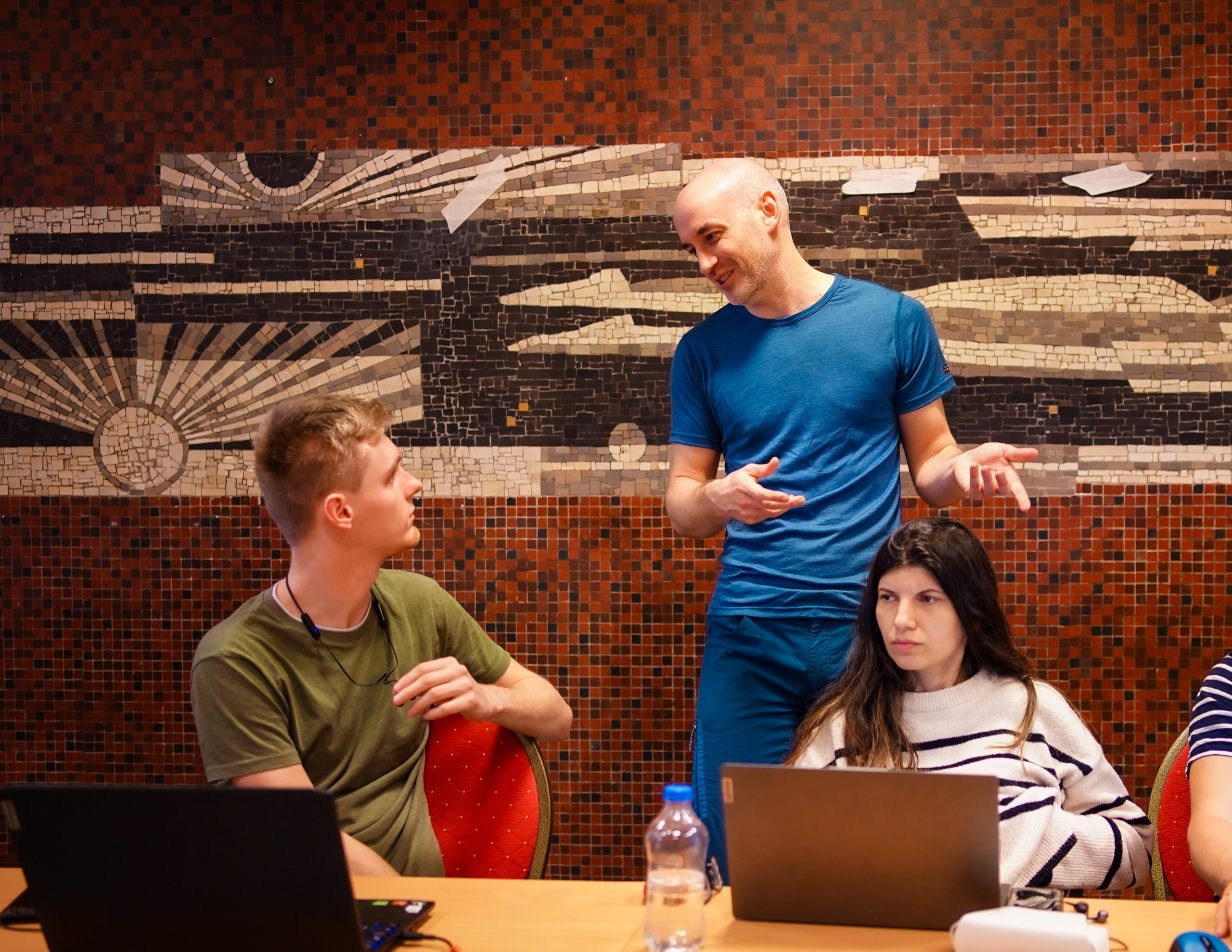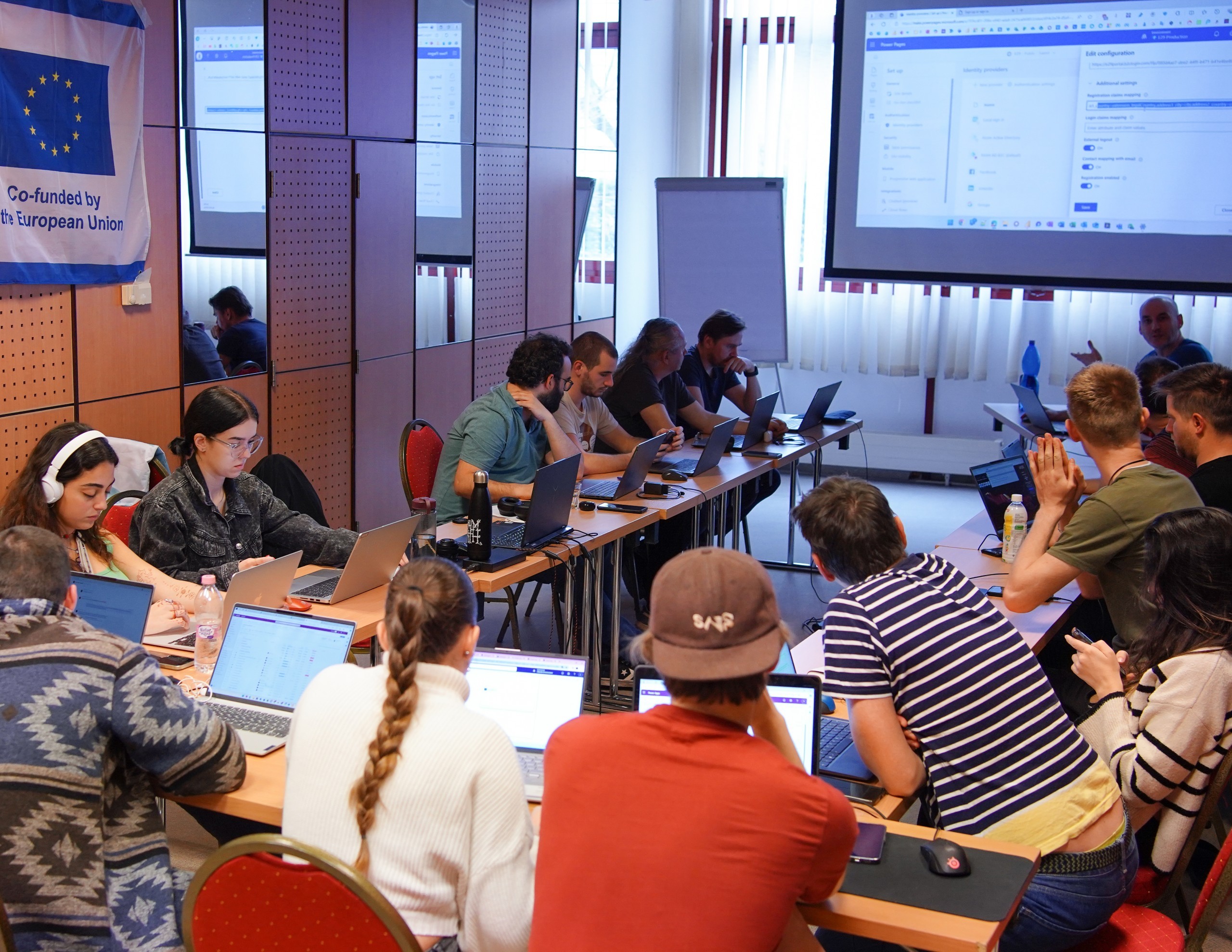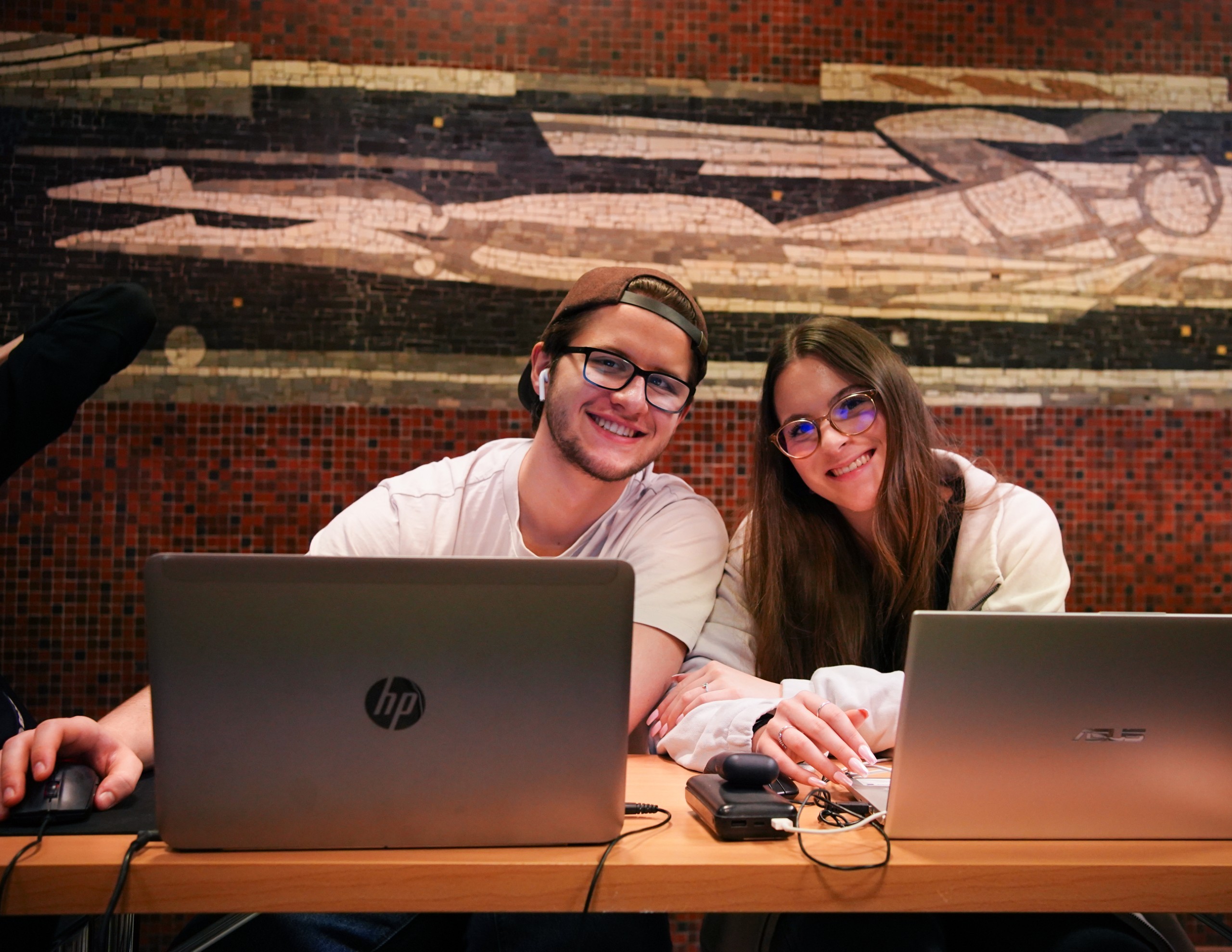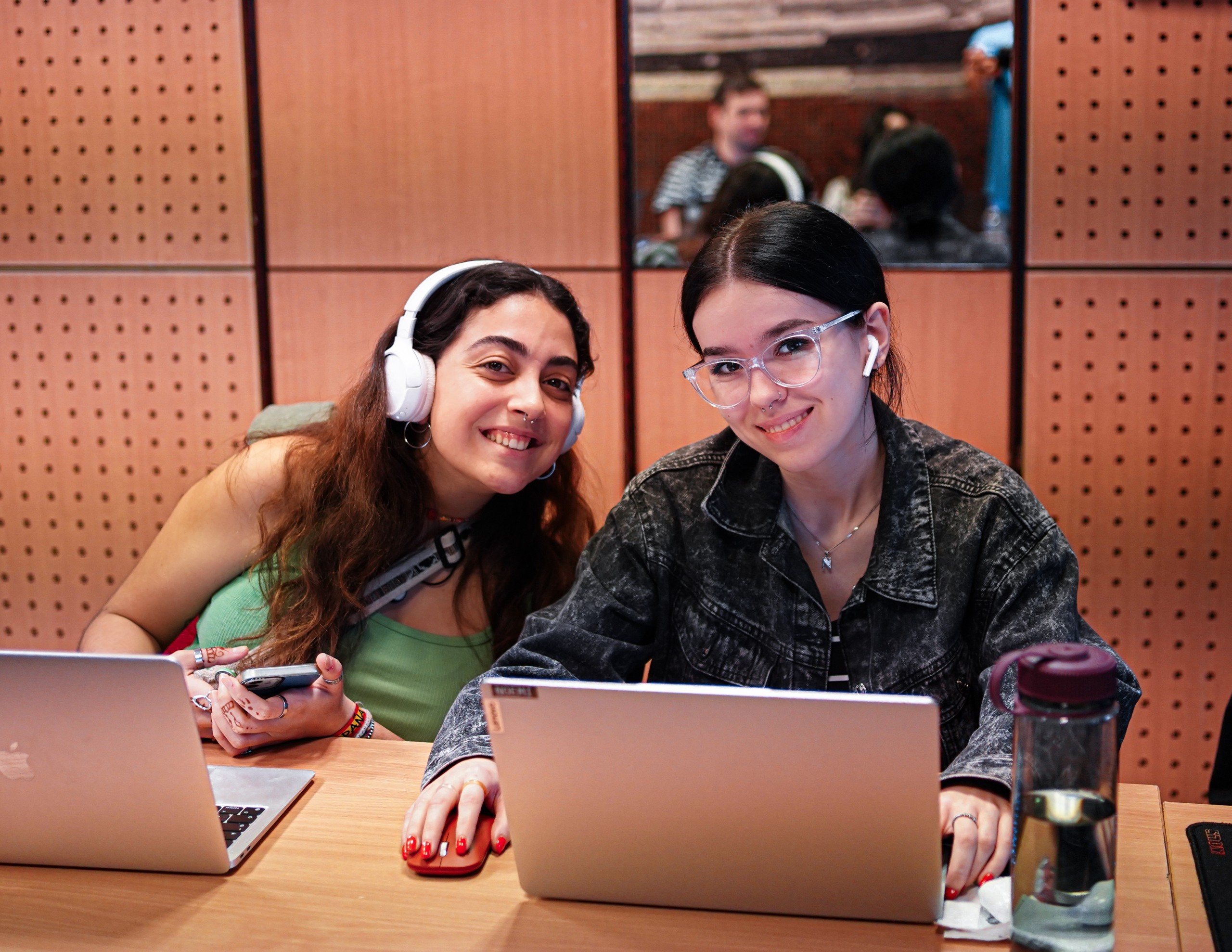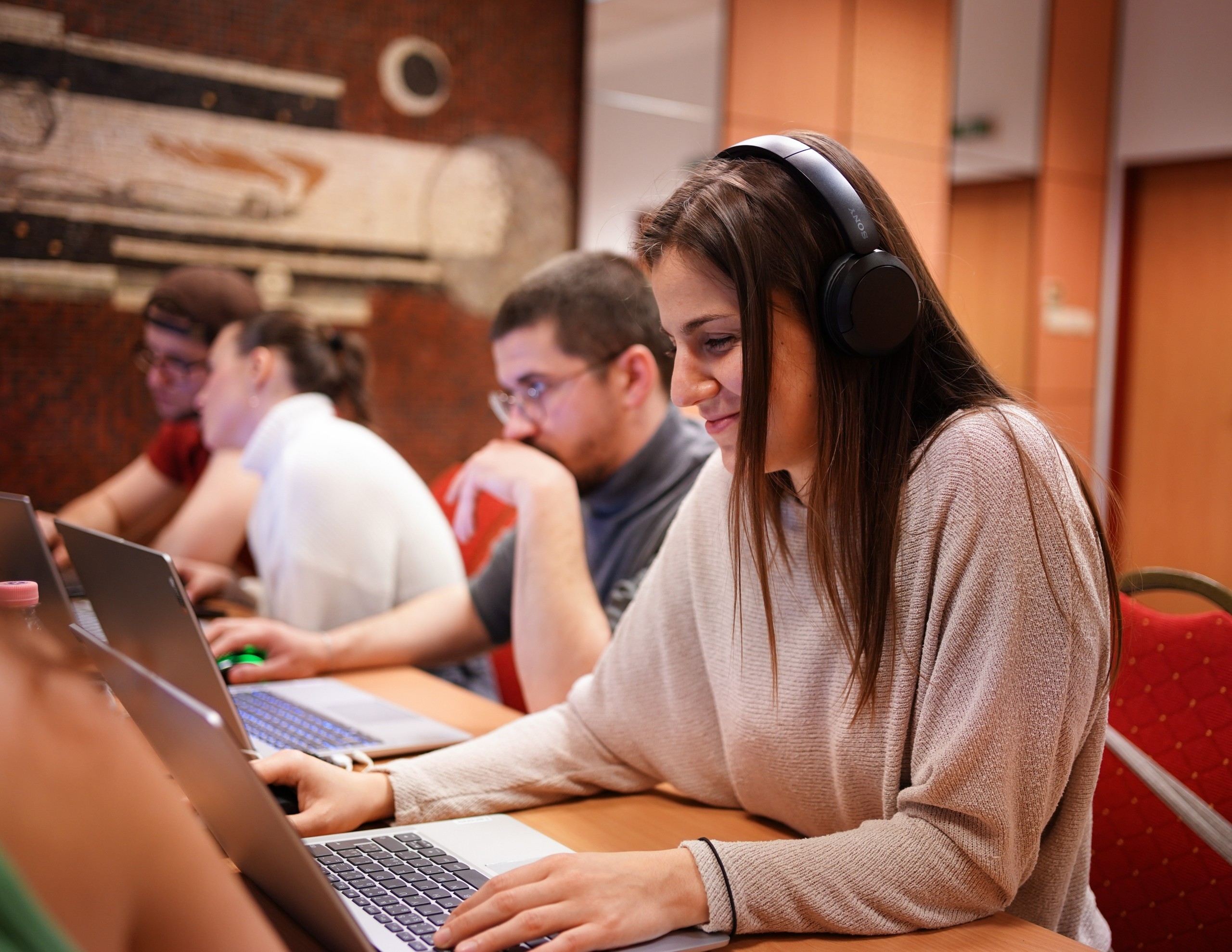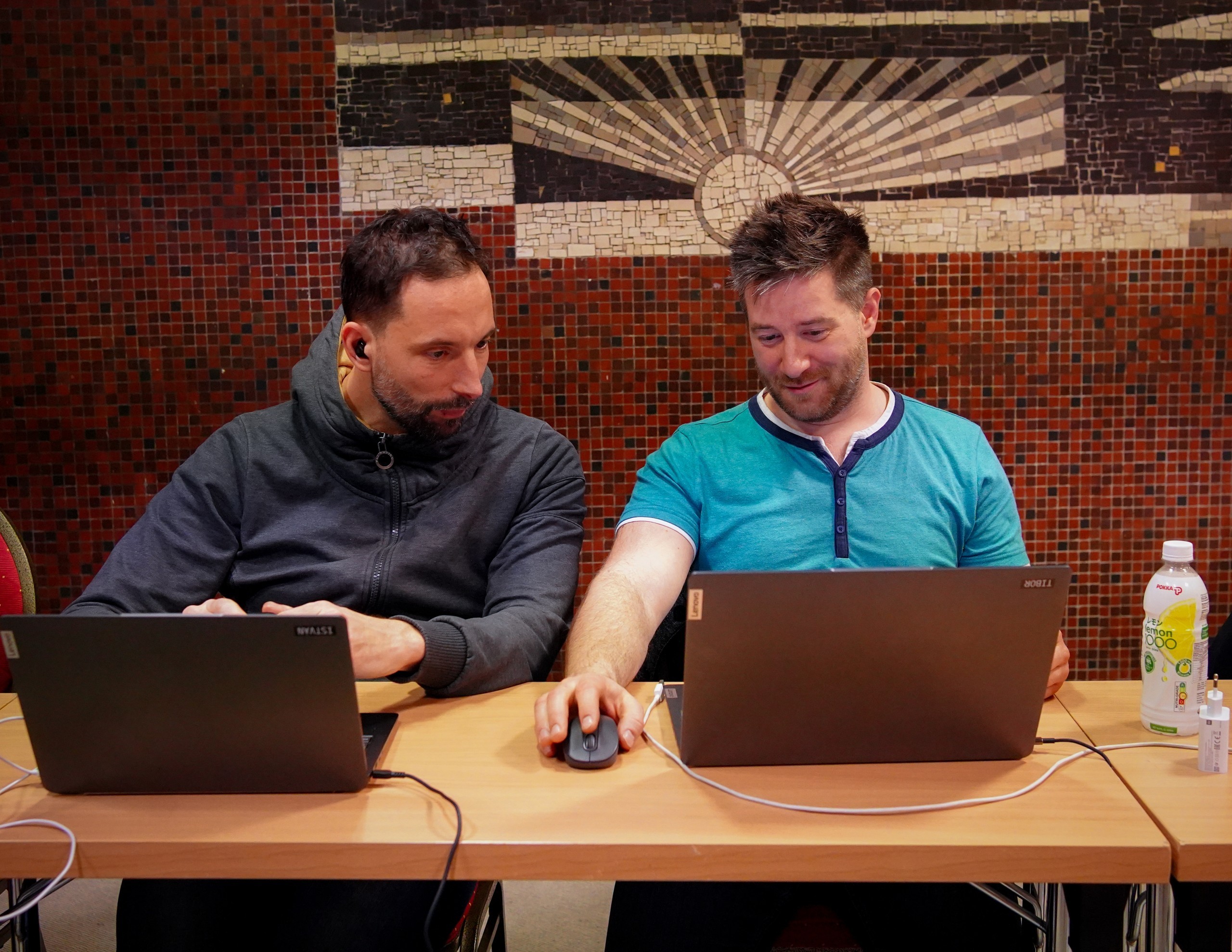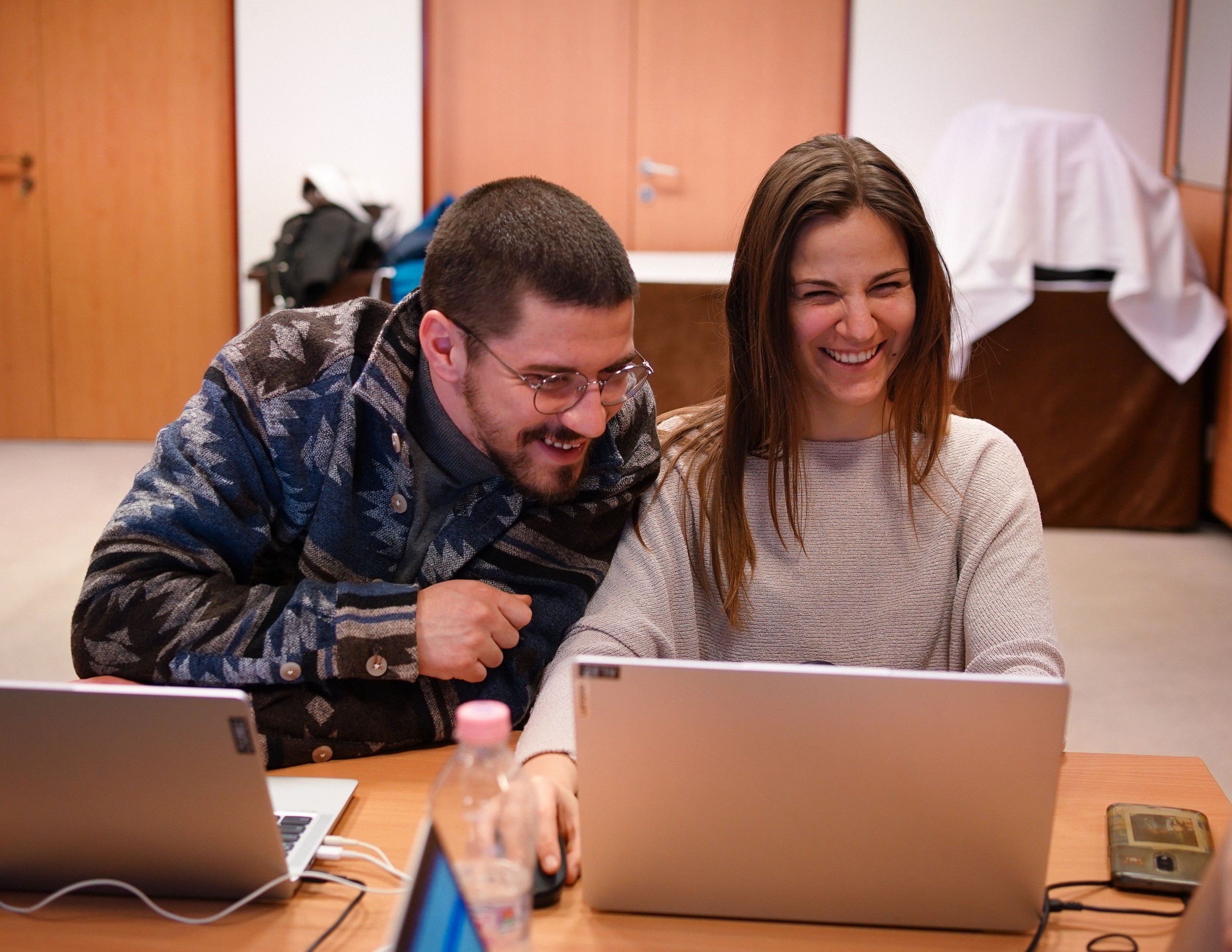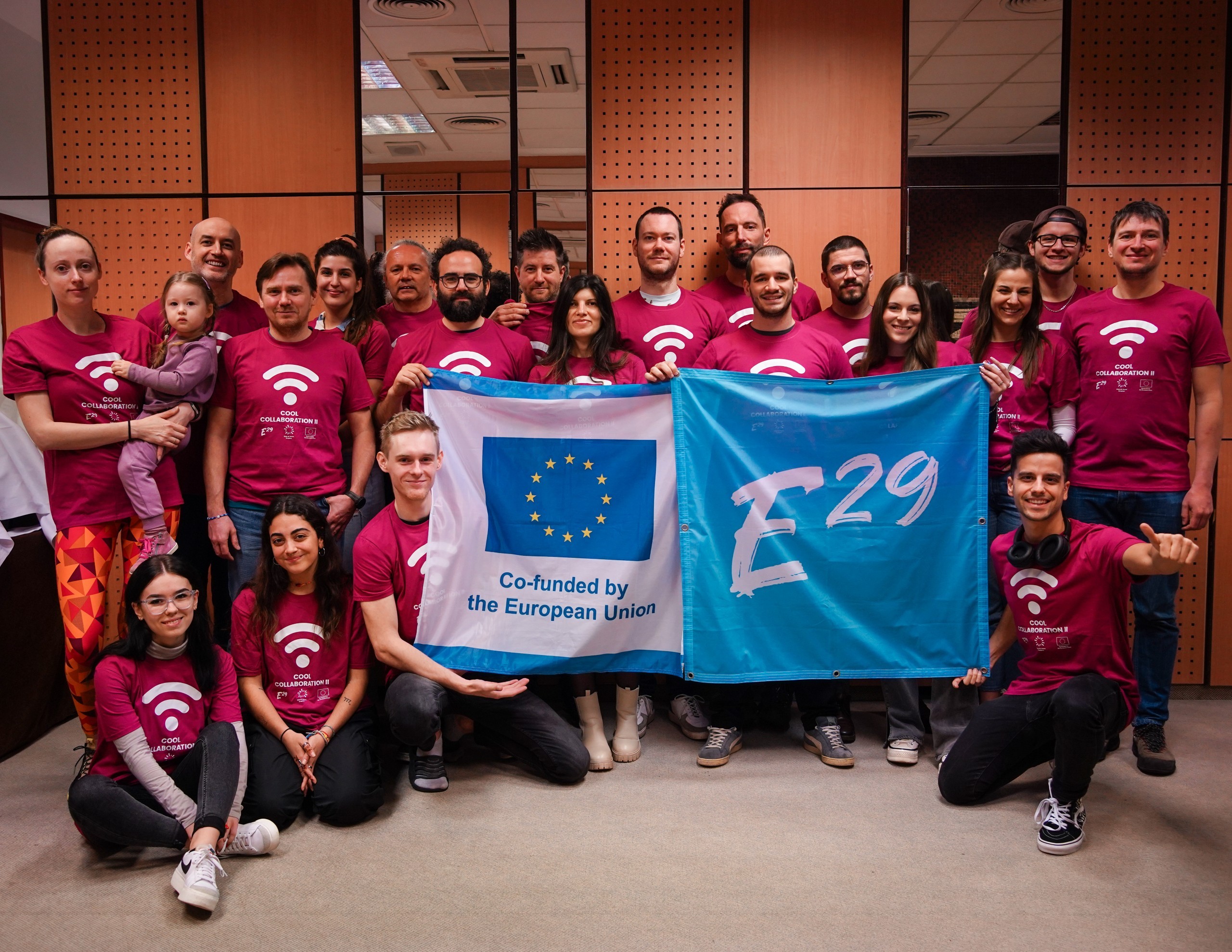Video Recap of Cool Collaboration II – Power Platform I
Topic
Digital Skills
Activity Dates
28.02 – 03.03.2024
Countries
PT, HU, SK, CZ
Location
Budapest, Hungary
In the frame of the Cool Collaboration II Erasmus+ KA2 project, youth workers from Portugal, Hungary, Slovakia, and Czechia gathered in Budapest for a training course focused on digital transformation in youth work. The aim was to equip participants with the tools and mindset needed to embrace technology more confidently and use it to enhance project planning and execution. Despite the chilly Budapest weather, the mood inside the session room was warm, curious, and productive. Participants stayed at Hotel Benczúr, where both accommodation and training took place, creating the perfect atmosphere for learning and collaboration.
The training centered around real, practical use of Microsoft 365 tools — particularly Power Apps, Power BI, and Power Automate. With laptops on the table and curiosity in the air, participants engaged in hands-on tasks such as designing app mockups, creating data dashboards, and thinking about how these digital tools can be applied to organizing future Erasmus+ activities. Each session sparked meaningful exchanges, and it was clear that the content struck a chord with participants who were eager to bring these digital tools back to their NGOs. The energy stayed high throughout the training, and many already started sketching ideas for future digital projects even before the final day.
Stay tuned for more opportunities to boost your digital skills with Cool Collaboration II! This project is a fantastic way to elevate your abilities and embrace the future of youth work. With more exciting activities on the way, don’t miss out on the chance to get involved and take your digital competencies to the next level. Keep an eye out for upcoming opportunities and be part of this transformative journey!

Funded by the European Union. Views and opinions expressed are however those of the author(s) only and do not necessarily reflect those of the European Union or the European Education and Culture Executive Agency (EACEA). Neither the European Union nor EACEA can be held responsible for them.

